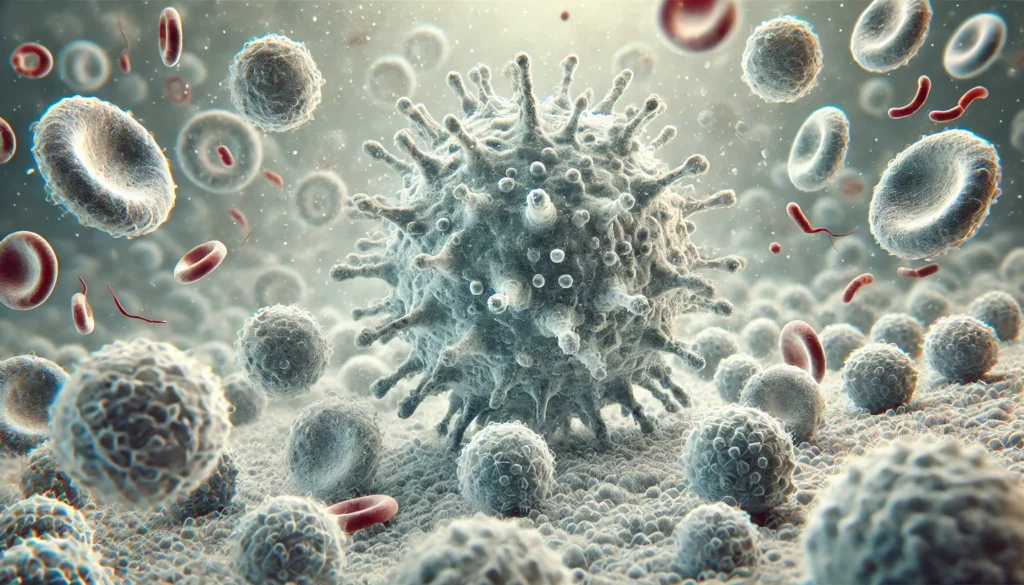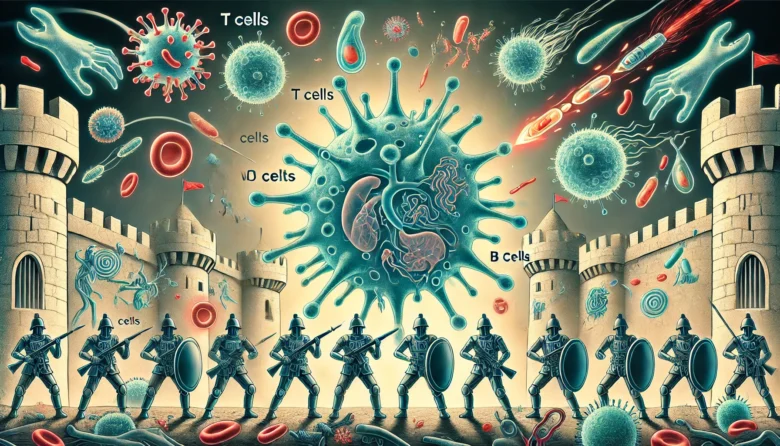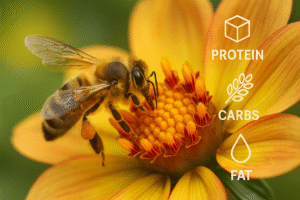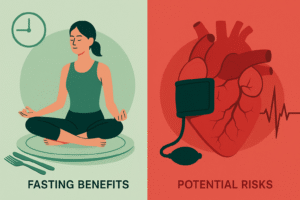Ever wonder what happens when your body fights off a cold or heals from a cut? The incredible dynamics of immune system responses are at play! The immune system is an intricate and sophisticated network that shields our bodies from harmful invaders such as bacteria, viruses, and toxins. It’s like having an army inside you, always on guard and ready to strike when needed. In this blog, we’ll explore how this system works, breaking down its components and responses in a way that’s easy to understand, relatable, and—hopefully—enlightening!
The First Line of Defense: Innate Immunity
Our body’s immune response starts with innate immunity, the non-specific, rapid response system we’re born with. Think of it as the body’s security guards, standing at the gates and preventing unwanted intruders from entering. It’s not fussy about who the invader is—it simply reacts. For instance, when you cut your finger, the area becomes red and swollen due to the immediate inflammatory response. This inflammation is the body’s way of sending reinforcements (like white blood cells) to the scene to fight off any possible infections.
This system also includes physical barriers like your skin and mucous membranes, which block invaders before they can even enter your body. Imagine you accidentally breathe in some dust—your nose and throat work overtime to trap and remove it, thanks to tiny hair-like structures called cilia. The innate system is our first, albeit general, line of defence.
When Specificity Kicks In: Adaptive Immunity
While the innate immune system provides a rapid response, it’s the adaptive immunity that takes things to the next level. This system is more precise, identifying specific invaders and launching a targeted attack. Adaptive immunity comes into play when the body encounters a pathogen it has never seen before or when a pathogen manages to bypass the innate immune system.
This response involves two key players: T cells and B cells. These specialized white blood cells help recognize and remember pathogens, ensuring that the next time you’re exposed to the same invader, your body can react more efficiently. It’s why we only get diseases like chickenpox once.
For example, imagine you’ve just been vaccinated for the flu. Vaccines include a weakened or inactive form of the virus, helping your immune system learn to identify and combat it. If the real virus tries to attack, your body already knows what to do—thanks to your adaptive immunity.

The Role of Antibodies
Antibodies are the immune system’s elite force, produced by B cells in response to pathogens. They’re like the body’s personalized weaponry, specifically designed to latch onto invaders and neutralize them. Each antibody is unique to the invader it’s fighting, much like a lock-and-key system.
Let’s say you catch a cold. The virus enters your body and starts replicating. In response, your B cells produce antibodies tailored to that specific virus. These antibodies then attach to the virus, marking it for destruction by other immune cells. Over time, your body remembers this invader, so if the same virus shows up again, your immune system can respond faster and more effectively.
The Memory of the Immune System
One of the coolest aspects of the adaptive immune system is its memory. After fighting off an invader, certain memory cells stay behind, ready to spring into action if the same pathogen returns. This is why vaccines are so effective—by “teaching” the immune system about a pathogen, vaccines help create these memory cells without the need for an actual infection.
Consider someone who had measles as a child. Decades later, even though they haven’t encountered the virus again, their body would still recognize and respond to it thanks to these memory cells. It’s like your immune system has a photographic memory of all the pathogens it has ever fought.
Case Study: COVID-19 and Immune Responses
COVID-19 offers a real-world example of how the immune system responds to new pathogens. When the coronavirus first emerged, no one’s immune system had encountered it before, making it difficult to combat initially. Those with a strong innate immune response often experienced mild symptoms or none at all, while others who struggled to mount an effective immune response experienced severe symptoms.
Over time, as people contracted the virus or received vaccines, their adaptive immunity kicked in. T cells and B cells learned how to identify and attack the virus, creating a population-wide defence against future infections. This process continues to evolve with new variants and vaccines, showcasing the dynamic nature of our immune system’s responses.
Autoimmune Diseases: When the Immune System Goes Rogue
While the immune system is vital for our health, it doesn’t always function perfectly. In some cases, it mistakenly attacks the body’s own healthy tissues, leading to autoimmune diseases like rheumatoid arthritis or type 1 diabetes. In these conditions, the immune system’s recognition system malfunctions, treating normal cells as if they were harmful invaders.
Imagine your body’s immune system is like a defence team with a strict list of enemies. In an autoimmune disease, this team starts attacking people who aren’t even on the list, causing unnecessary damage. Autoimmune diseases are complex, and while treatments exist to manage them, scientists are still working to understand their causes fully.
Boosting Your Immune System
You’ve probably heard people talk about “boosting” the immune system, but how exactly does that work? Maintaining a nutritious diet packed with essential vitamins (particularly C and D), staying physically active, getting enough sleep, and managing stress all support a well-functioning immune system. But it’s important to remember that the immune system doesn’t need to be constantly “boosted” like a machine—it needs to be balanced and supported.
For instance, during cold and flu season, many people turn to foods rich in vitamin C, like oranges or supplements. While vitamin C won’t prevent you from getting sick, it may help support your immune function and reduce the severity of symptoms.
The Future of Immune System Research
Exciting advancements are being made in immunotherapy—a type of treatment that uses the immune system to fight diseases, particularly cancer. Immunotherapy works by enhancing the body’s natural defences, making it more effective at identifying and destroying cancer cells. Companies like Novartis (a global healthcare company specializing in pharmaceuticals) and Roche (a leader in cancer treatments) are making strides in developing these therapies, offering new hope for patients around the world.
Conclusion
The dynamics of immune system responses are a testament to the body’s resilience and complexity. From its first line of defense in the form of innate immunity to the targeted precision of adaptive immunity, our immune system is always working to keep us healthy. As we continue to explore and understand this intricate system, the future holds even more promising developments in immune-related therapies and treatments.
So, next time you shake off a cold or recover from a flu shot, take a moment to appreciate the incredible machinery inside you. And remember, a little care for your body goes a long way in supporting the dynamic and ever-vigilant immune system!
Author’s Note:
I hope this blog helped demystify the incredible workings of your immune system. Our body’s ability to protect and heal itself is nothing short of remarkable! Stay healthy, and keep learning about the wonders within you.
G.C., Ecosociosphere contributor.
References and Further Reading:
- World Health Organization – Immune System
- Harvard Health – How the Immune System Works
- COVID-19 vaccination | healthdirect. https://www.healthdirect.gov.au/covid-19/vaccinations?language=prs
- The basics of immunology: Understanding the importance of the immune system in health and disease.. https://www.alliedacademies.org/articles/the-basics-of-immunology-understanding-the-importance-of-the-immune-system-in-health-and-disease-24291.html
- 10 Reasons to Consider Incorporating Carbon 60 into Your Cancer Prevention Routine. https://c60-france.com/en/blog/29_carbon-60-cancer-prevention-10-reasons.html




